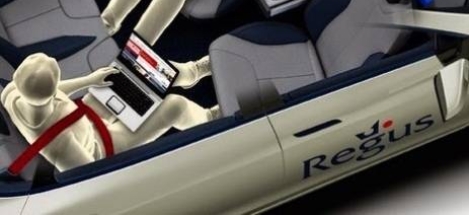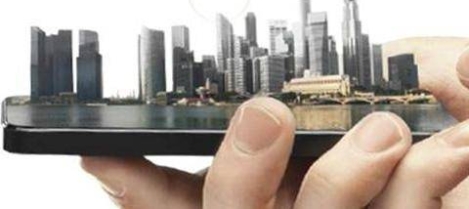To provide the best experiences, we use technologies like cookies to store and/or access device information. Consenting to these technologies will allow us to process data such as browsing behaviour or unique IDs on this site. Not consenting or withdrawing consent, may adversely affect certain features and functions.
The technical storage or access is strictly necessary for the legitimate purpose of enabling the use of a specific service explicitly requested by the subscriber or user, or for the sole purpose of carrying out the transmission of a communication over an electronic communications network.
The technical storage or access is necessary for the legitimate purpose of storing preferences that are not requested by the subscriber or user.
The technical storage or access that is used exclusively for statistical purposes.
The technical storage or access that is used exclusively for anonymous statistical purposes. Without a subpoena, voluntary compliance on the part of your Internet Service Provider, or additional records from a third party, information stored or retrieved for this purpose alone cannot usually be used to identify you.
The technical storage or access is required to create user profiles to send advertising, or to track the user on a website or across several websites for similar marketing purposes.
 I recently had the pleasure of travelling to Cape Town to present a keynote address at the Dare to Lead conference organised by Green Building Council South Africa (GBCSA). I had just 20 minutes to speak on a psychologist’s view of health, wellbeing and performance; that’s a huge subject area and pretty much my whole career condensed down to the typical time it takes to boil a pan of potatoes. So, I focused on just three psychological theories: motivation, personality and evolutionary psychology.
I recently had the pleasure of travelling to Cape Town to present a keynote address at the Dare to Lead conference organised by Green Building Council South Africa (GBCSA). I had just 20 minutes to speak on a psychologist’s view of health, wellbeing and performance; that’s a huge subject area and pretty much my whole career condensed down to the typical time it takes to boil a pan of potatoes. So, I focused on just three psychological theories: motivation, personality and evolutionary psychology.





 With the Met Office predicting that the hot weather looks set to continue for much of this week, workplace expert Acas, has offered some tips to help employers manage workplace challenges due to the hot weather. From a legal perspective, it advises that workplace temperatures should be reasonable as the Health & Safety Executive (HSE) has stated that the temperature in all workplaces inside buildings must be reasonable. The HSE offers
With the Met Office predicting that the hot weather looks set to continue for much of this week, workplace expert Acas, has offered some tips to help employers manage workplace challenges due to the hot weather. From a legal perspective, it advises that workplace temperatures should be reasonable as the Health & Safety Executive (HSE) has stated that the temperature in all workplaces inside buildings must be reasonable. The HSE offers  Most FMs would tell you that the state of the workplace toilets is often one of the main determinants by occupants on how well the facilities department is doing its job. So it’s disturbing to learn that according to a new survey a significant number of employees have cause to complain about the state of their workplace toilet facilities. The research, carried out by the Association of Plumbing & Heating Contractors claims that 16.5 percent of people are unhappy at work due to the condition of their employer’s toilets which is having a negative impact on their levels of engagement. Their research found 43.8 percent of the people surveyed felt their workplace toilets needed to be better maintained. And when asked if their workplace toilets require updating or refurbishing, 44.4 percent said they did. London seemingly has the worst workplace toilets with 50.9 percent of workers surveyed believing they need to be better maintained and require refurbishing.
Most FMs would tell you that the state of the workplace toilets is often one of the main determinants by occupants on how well the facilities department is doing its job. So it’s disturbing to learn that according to a new survey a significant number of employees have cause to complain about the state of their workplace toilet facilities. The research, carried out by the Association of Plumbing & Heating Contractors claims that 16.5 percent of people are unhappy at work due to the condition of their employer’s toilets which is having a negative impact on their levels of engagement. Their research found 43.8 percent of the people surveyed felt their workplace toilets needed to be better maintained. And when asked if their workplace toilets require updating or refurbishing, 44.4 percent said they did. London seemingly has the worst workplace toilets with 50.9 percent of workers surveyed believing they need to be better maintained and require refurbishing.


 Employees coming into work when sick are contributing to a rising trend of ‘presenteeism’ across the UK, with more than half (52 percent) of UK workers admitting to going to work when their performance is negatively affected by work-related health issues, a new survey claims. A third (34 percent) of workers have even considered moving jobs due to the negative impact of their work environment on their health – the highest percentage across Europe. The report from Fellowes, published to coincide with World Day for Safety and Health at Work, argues when a worker is present but not able to perform their function properly, it compromises their productivity. With most employees continuing to work at sub-par levels rather than taking days off to recover, this also prolongs the effect of illness. Subsequently, businesses are experiencing a detrimental knock-on impact on the quality and volume of work produced, with a further impact on overall business performance.
Employees coming into work when sick are contributing to a rising trend of ‘presenteeism’ across the UK, with more than half (52 percent) of UK workers admitting to going to work when their performance is negatively affected by work-related health issues, a new survey claims. A third (34 percent) of workers have even considered moving jobs due to the negative impact of their work environment on their health – the highest percentage across Europe. The report from Fellowes, published to coincide with World Day for Safety and Health at Work, argues when a worker is present but not able to perform their function properly, it compromises their productivity. With most employees continuing to work at sub-par levels rather than taking days off to recover, this also prolongs the effect of illness. Subsequently, businesses are experiencing a detrimental knock-on impact on the quality and volume of work produced, with a further impact on overall business performance.




 Whether or not you raise an eyebrow every time you hear about the need for employee engagement, there is a growing body of research which links engagement to performance.
Whether or not you raise an eyebrow every time you hear about the need for employee engagement, there is a growing body of research which links engagement to performance. 
 A coalition of twenty major European telecommunications firms has come together to drive the rapid creation of a continent wide 5G network and warn national Governments and the EU of the dangers of over-regulation. The seven page document entitled the
A coalition of twenty major European telecommunications firms has come together to drive the rapid creation of a continent wide 5G network and warn national Governments and the EU of the dangers of over-regulation. The seven page document entitled the 











May 25, 2016
Urban Millennials are worried about the same things as everybody else 0
by Mark Eltringham • Cities, Comment
(more…)